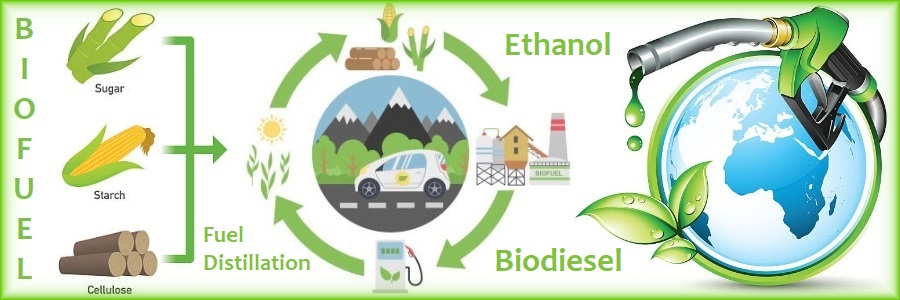The Benefits of Biofuels
Welcome to our comprehensive guide on the benefits of biofuels. In this article, we will delve into the numerous advantages that biofuels offer, highlighting their positive impact on the environment, economy, and energy security.
Environmental Benefits
Biofuels and Reduced Carbon Emissions:
Biofuels play a crucial role in mitigating climate change by reducing carbon emissions. Unlike fossil fuels, biofuels are derived from renewable sources such as plants, algae, and organic waste. When burned, they release carbon dioxide (CO2), but this CO2 is offset by the carbon absorbed during the growth of the feedstock. As a result, biofuels have a significantly lower carbon footprint compared to traditional fossil fuels.
Improved Air Quality:
Another environmental benefit of biofuels is their potential to improve air quality. Biofuels produce fewer pollutants, such as sulfur and particulate matter, which are harmful to human health and contribute to air pollution. By using biofuels, we can reduce the emission of these pollutants and create cleaner and healthier environments for communities.
Economic Benefits
Job Creation and Economic Growth:
The production and use of biofuels have the potential to stimulate economic growth and create employment opportunities. The biofuels industry requires a range of skilled workers, from farmers and researchers to engineers and technicians. By investing in biofuel production, countries can foster job creation and contribute to the growth of a sustainable and innovative sector.
Energy Independence and Security:
Biofuels offer a pathway towards reducing dependence on imported fossil fuels. By developing a robust biofuel industry, countries can enhance their energy security and reduce vulnerability to geopolitical tensions and price fluctuations in the global oil market. Biofuels provide a renewable and domestically available energy source, ensuring a reliable supply for transportation and other sectors.
Social Benefits
Rural Development and Poverty Alleviation:
The production of biofuels often involves agricultural activities, providing opportunities for rural development and poverty alleviation. Small-scale farmers and rural communities can benefit from cultivating biofuel feedstocks, creating additional income streams and improving their livelihoods. Moreover, biofuel production can promote sustainable agricultural practices and support local economies.

In conclusion, the benefits of biofuels are numerous and extend beyond just environmental considerations. Biofuels offer a sustainable and renewable alternative to fossil fuels, contributing to the reduction of carbon emissions, improved air quality, and enhanced energy security. Additionally, the biofuels industry has the potential to drive economic growth, create jobs, and support rural development. By embracing biofuels, we can pave the way towards a greener and more sustainable future.
Thank you for reading our article on the benefits of biofuels. We hope you found it informative and insightful. If you have any further questions or would like to learn more, please don’t hesitate to reach out to us.
Frequently Asked Questions about the Benefits of Biofuels
1. What are biofuels?
Biofuels are fuels produced from renewable resources, such as plants, crops, and organic waste.
2. What are the main benefits of using biofuels?
The main benefits of using biofuels include reduced greenhouse gas emissions, increased energy security, and support for rural economies.
3. How do biofuels help reduce greenhouse gas emissions?
Biofuels produce lower carbon dioxide emissions compared to fossil fuels when burned, helping to mitigate climate change.
4. Can biofuels help decrease dependence on fossil fuels?
Yes, biofuels can help decrease dependence on fossil fuels by providing a renewable and sustainable alternative for transportation and energy production.
5. Do biofuels have any positive impact on air quality?
Yes, biofuels produce fewer air pollutants, such as sulfur and particulate matter, resulting in improved air quality.
6. Are biofuels compatible with existing vehicles and infrastructure?
Yes, many biofuels can be used in existing vehicles and infrastructure without the need for major modifications.
7. Do biofuels contribute to the creation of jobs?
Yes, the biofuel industry creates jobs in various sectors, including agriculture, manufacturing, and research and development.
8. Can biofuels help diversify energy sources?
Yes, biofuels provide an alternative to traditional fossil fuels, contributing to the diversification of energy sources and reducing reliance on a single resource.
9. Are biofuels economically viable?
Yes, biofuels can be economically viable, especially when considering the long-term benefits they offer, such as reduced environmental impact and energy security.
10. Are there any potential drawbacks or challenges associated with biofuels?
Some challenges include the competition for land and resources, the potential impact on food prices, and the need for sustainable and efficient production methods.




